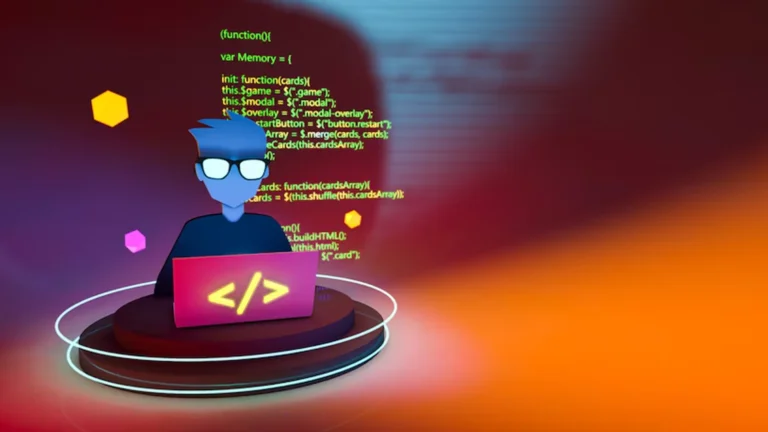Git is an essential tool for version control in modern software development. While it is powerful, managing commits in a clean and structured way can be challenging. This is where Commitizen comes into play. commitzen is a tool that helps developers standardize commit messages, making the version control process more organized and efficient.
In this article, we’ll explore how commitzen can optimize your Git workflow, the benefits of structured commit messages, and how you can implement it in your projects for clearer, more maintainable code history.
TRENDING
What Is 00900? A Complete Guide For Beginners
What Is commitzen?
Commitizen is an open-source tool designed to enforce consistent commit message formats. In software development, clear commit messages are critical because they serve as a history of changes, enabling easier collaboration, debugging, and project tracking.
Commitizen helps developers write commit messages in a structured way by following predefined conventions, such as the “Conventional Commits” specification. This ensures that each commit message includes relevant information in a format that can be easily parsed by various tools and CI/CD systems.
By adopting Commitizen, teams can automate the generation of changelogs, integrate with semantic versioning, and maintain a higher level of clarity and consistency throughout their Git history.
Why Commit Messages Matter
Before diving into how Commitizen can enhance your Git workflow, let’s understand why commit messages matter in the first place.
Improved Collaboration
Clear commit messages make it easier for team members to understand what changes have been made, why they were made, and how they affect the project. This transparency improves collaboration and helps avoid conflicts, duplication of effort, and confusion.
Enhanced Debugging
A well-written commit message often includes the problem being fixed or the feature being added, which helps when tracing issues. A project history with clear commit messages makes debugging faster because you can quickly identify when a particular change was introduced.
Automated Changelogs
Automating changelog generation is one of the most useful features of structured commit messages. By adhering to specific commit message formats, tools can automatically compile a changelog based on the types of commits that have been made (e.g., breaking changes, new features, fixes).
Versioning with Semantic Meaning
Using structured commit messages can help implement semantic versioning. This means that version bumps (major, minor, patch) can be automatically inferred based on the types of commits in the repository, making releases more predictable and reducing manual work.
The Commitizen Approach To Git Workflow
Now that we understand why commit messages are important, let’s look at how Commitizen fits into the workflow.
Installing Commitizen
To get started with Commitizen, you first need to install it in your project. Here’s how you can do it with npm (Node Package Manager):
Once installed, you need to configure Commitizen to use a specific adapter, which defines the commit message format. The most commonly used adapter is cz-conventional-changelog, which follows the Conventional Commits specification.
Install it by running:
Then, configure it in your package.json file:
Using Commitizen to Make Commits
Once Commitizen is set up, you can start using it to create commit messages. Instead of running the traditional git commit command, you’ll use:
This will launch an interactive prompt that guides you through the commit message creation process. You’ll be asked a series of questions, such as:
- Type (e.g.,
feat,fix,docs, etc.) - Scope (optional, specifying which part of the project is affected)
- Short description
- Longer description (optional)
- Breaking changes (if applicable)
- Issues closed (if applicable)
This process helps ensure that commit messages adhere to the agreed-upon format, making them clear, concise, and easy to understand.
Automating Changelog Generation
One of the significant benefits of using Commitizen with conventional commits is the ability to automate changelog generation. Tools like standard-version can be integrated to create a changelog automatically based on the commit messages.
To set up standard-version, you can install it via npm:
Then, you can run:
This will analyze the commit messages, bump the version according to semantic versioning rules, and update the changelog accordingly.
Integrating with CI/CD Pipelines
Commitizen’s standardized commit messages can also be used in your CI/CD pipelines. For instance, you can configure your pipeline to check commit messages and enforce standards, ensuring that only properly formatted messages are allowed.
Benefits Of Using Commitizen In Your Workflow
Consistency Across Teams
Commitizen helps maintain a consistent commit message format across teams, making the project history easier to follow. This is especially helpful in large teams or open-source projects where multiple contributors are involved.
Automated Versioning
With semantic commit messages, versioning becomes automated. Tools like standard-version can infer version bumps (major, minor, patch) based on the types of commits made, reducing the manual effort needed for version management.
Efficient Changelog Creation
Commitizen makes it easy to generate changelogs automatically, saving time and effort. The changelog will be based on the commit types (e.g., feature, fix, breaking change), making it more informative and structured.
Better Code Reviews
Commitizen encourages developers to write meaningful commit messages that clearly describe the purpose of each change. This improves the quality of code reviews, as reviewers can easily understand the context of each change.
Improved Debugging and Maintenance
Structured commit messages make it easier to trace issues in the project history. When a bug arises, you can quickly identify the commits that might have caused the problem based on their descriptions.
How To Implement Commitizen In Your Git Workflow
Set Commit Guidelines
If your team decides to adopt Commitizen, it’s important to set clear commit guidelines. You should define the commit message structure (e.g., “feat:”, “fix:”, “docs:”, etc.) and ensure that all team members are on the same page about when and how to use each type.
Educate Your Team
If Commitizen is new to your team, take the time to explain how it works and why it’s beneficial. Provide training or documentation to help everyone understand how to use the tool properly.
Integrate into CI/CD Pipelines
To enforce commit message standards, consider adding commit message validation to your CI/CD pipelines. Tools like commitlint can be used to validate that commit messages follow the desired format.
Gradual Adoption
If you’re working on an existing project with a large history of commits, you may not be able to fully switch to commitzen right away. In this case, consider a gradual adoption strategy where new commits follow the new conventions while older commits retain their existing formats.
Conclusion
commitzen is a powerful tool that can significantly optimize your Git workflow. By enforcing consistent commit message formats, it ensures clearer communication, improves collaboration, and simplifies versioning and changelog creation. Whether you are working alone or in a large team, adopting commitzen can help streamline your development process, making your Git history more organized, maintainable, and easier to navigate.
ALSO READ: Master Proper CPR Hand Placement For Effective Rescues
FAQs
What is commitzen?
commitzen is a tool that helps developers create standardized commit messages, following a predefined format (such as Conventional Commits). This makes version control cleaner, more consistent, and easier to maintain.
How does Commitizen improve collaboration in teams?
By enforcing a consistent commit message format, Commitizen ensures that all team members use a clear and structured way of describing their changes. This reduces confusion and makes it easier to track the history of changes, facilitating better collaboration.
Can Commitizen automatically generate changelogs?
Yes, Commitizen can be integrated with tools like standard-version to automatically generate changelogs based on the commit messages. This saves time and ensures that your changelog is up-to-date with the latest changes.
Is Commitizen compatible with existing Git projects?
Yes, Commitizen can be easily integrated into existing Git projects. You can start using it gradually and ensure that new commits follow the standardized format without disrupting your project’s history.
Do I need to use Commitizen with every commit?
While using Commitizen is highly beneficial for consistency, it is not mandatory. However, to take full advantage of its benefits, it’s recommended to use Commitizen for every commit, especially in larger teams or open-source projects where clear communication is crucial.

